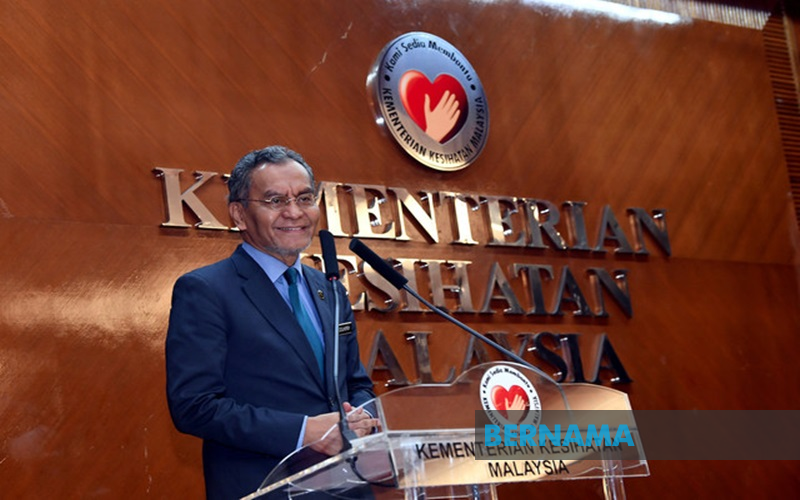Polio virus probably brought in from outside Malaysia - Dr Dzulkefly
PUTRAJAYA, Dec 9 -- The polio virus which infected a three-month-old Malaysian boy from Tuaran, Sabah is suspected to have come from outside Sabah, said Health Minister Datuk Seri Dr Dzulkefly Ahmad.
He said there were two possibilities how the polio virus, which had been eradicated 27 years ago, could reappear in the country - either the virus came from the Philippines or the infant’s family had travelled abroad.
However, according to initial investigation, the infant’s family members did no travel overseas.
"So in most likelihood the virus came from outside Sabah as the family has no travel history. It could be brought in by an outsider coming to Sabah," he told a news conference after opening the Health Ministry's Innovation Day 2019 celebration, here today.
Dr Dzulkefly said the baby started showing symptoms of the virus infection before getting the second vaccination.
"I hope parents would ensure that the three recommended doses are completed to prevent their children from being infected with such a disease," he said.
Dr Zulkefly said among measures taken by the ministry were going to the residential area where the infant lived and giving vaccination to those below the age of 15 in the area.
"In addition, we will also identify areas that are at risk for this symptom. Currently, only vaccinations could help as the infection could not be treated with medication," he said.
"This virus may imitate and mutate, so we have to be careful and parents especially must ensure that their their children are vaccinated," he said, adding that proper hygiene must be observed when handling babies as the virus could spread easily.
Dr Dzulkefly dismissed claims that inactivated polio vaccine (IPV) caused the vaccine-derived poliovirus (VDPV) as it contained inactivated polio virus.
"KKM wants to emphasise that the VDPV detected in this reported case was not caused by IPV vaccine," he said.
Throughout the use of oral polio vaccine in Malaysia, he said, over 80 million doses were given and no cases of VDPV were detected.
"All of the poliomyelitis cases previously reported in Malaysia were cases of wild poliovirus (WPV) infection with the last case reported in 1992," he said.
Dr Dzulkefly also urged all parties not to distort facts on the VDPV by obtaining valid information from the ministry.
"Parents and the public are urged to cooperate with KKM to curb the spread of the infection so that Malaysia is free from polio," he said.
Asked whether his ministry would make vaccination mandatory, Dr Dzulkefly said the government was now working to ensure that the country's immunisation programme is successfully implemented nationwide.
"We will do this first before making it mandatory by strengthening the immunisation programme throughout the country, particularly at Orang Asli settlements," he said.
-- BERNAMA
HealthEdge
EXCLUSIVE

Pet Vaccination, Public Awareness And Surveillance Key Towards Rabies-free Southeast Asia - Experts
KUCHING, Dec 11 (Bernama) -- The goal of making Southeast Asia free from human rabies can be achieved through a total understanding of the disease, how it can be prevented and responsible pet ownership among communities, say experts.
read more ››IN FOCUS

TAVI KAEDAH BAIK PULIH INJAP JANTUNG TANPA PEMBEDAHAN




